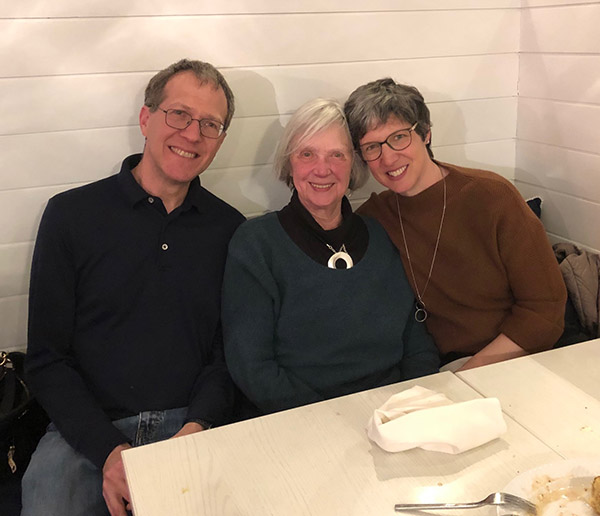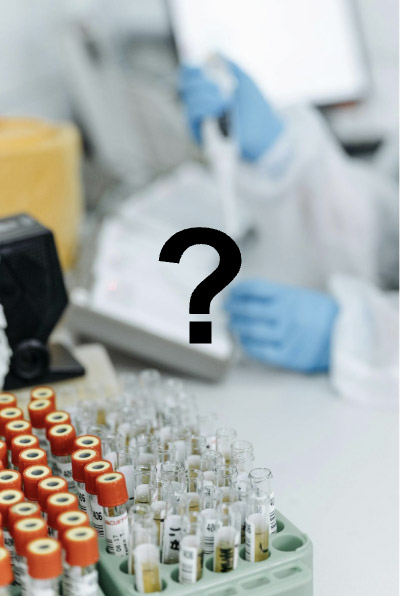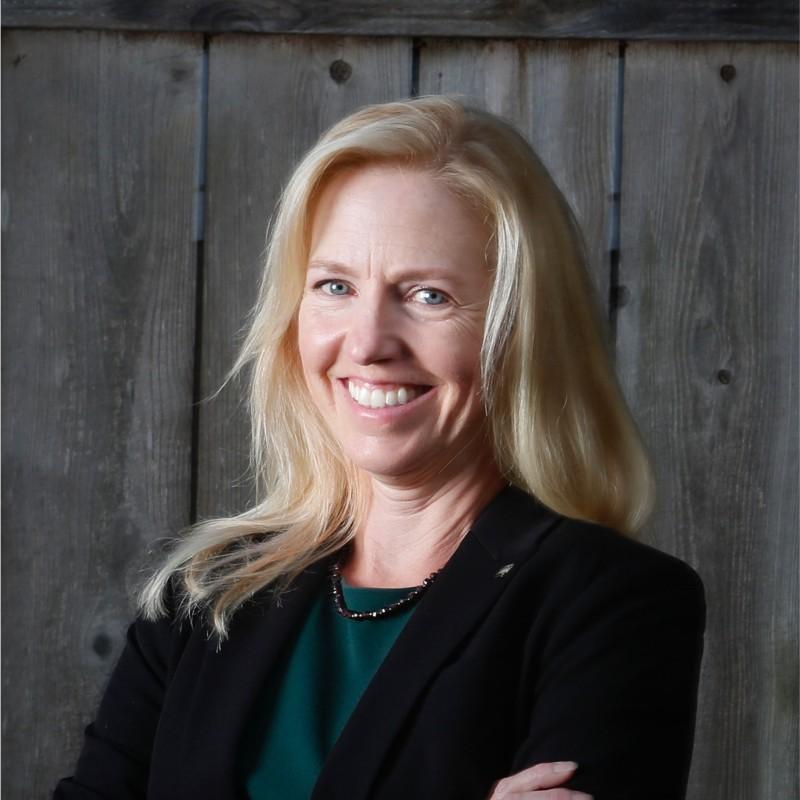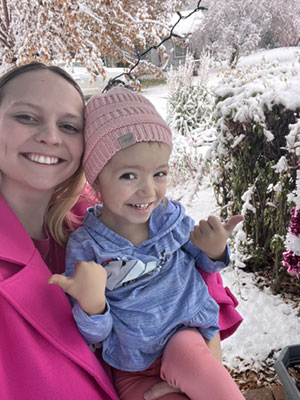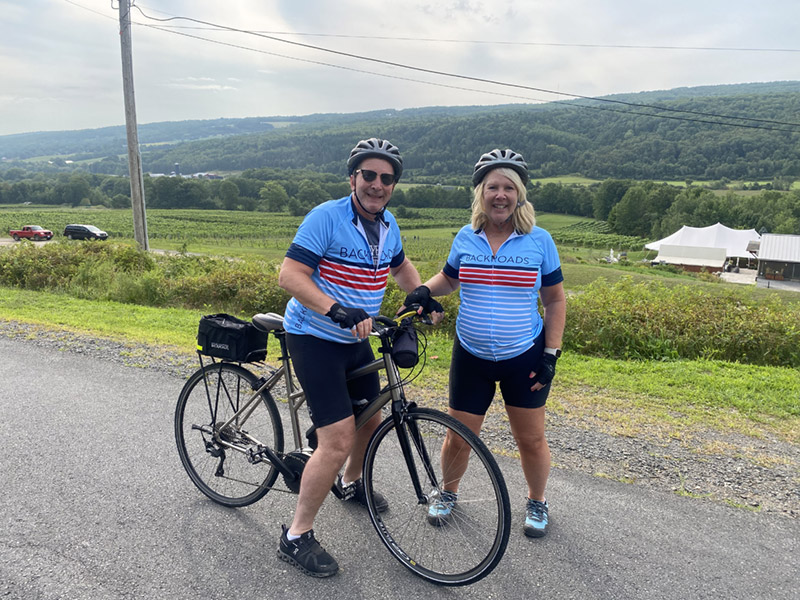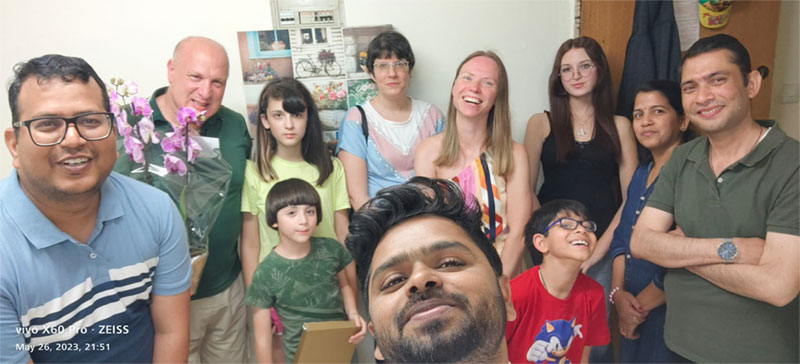By Robin Knoll
October 20th, 2023
My friends and family have always told me that I do too much. Between my job as a social worker and volunteering with Hadassah for the last 36 years, advocating for people is just what I do. I am a wife, a mother, a grandmother and, since my husband Mark started having symptoms of Adult Polyglucosan Body Disease (APBD) several years ago, a caregiver.
Like many others who have APBD, Mark’s journey started with bladder issues. As time went on, it affected his balance, and then his ability to walk and stand. I have lost count of the number of unsuccessful surgeries he had and the number of doctors we saw who were all stumped. It was years before he received a correct diagnosis, and that didn’t happen until one of his brothers started having the very same symptoms. An ultra-rare, neurodegenerative disorder, APBD is inherited recessively, meaning Mark and his two brothers were each at a 25% risk of inheriting the condition. With very little functioning glycogen branching enzyme, toxic polyglucosan bodies build up in the muscles and nerves and result in degeneration of both the peripheral and central nervous systems. There are no FDA-approved treatments or cures.
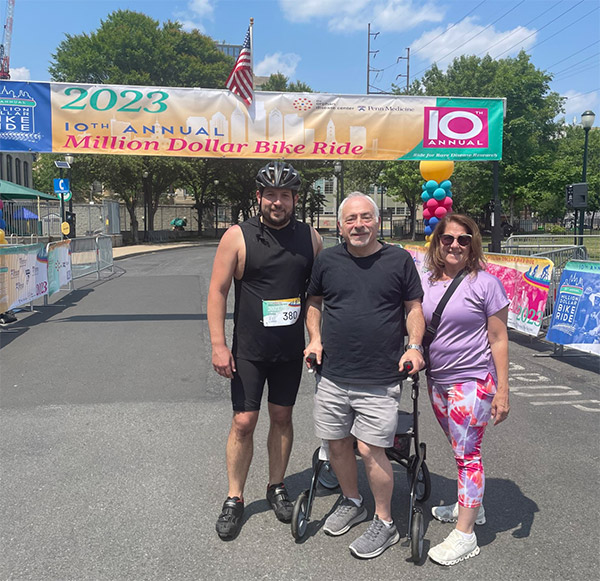
From left to right: Adam (Mark and Robin’s son), Mark, and Robin Knoll at the 2023 Million Dollar Bike Ride
Since learning that Mark has APBD, I have had to be the realistic one about making plans for what’s to come. Every time we go to his doctor’s appointments all we hear about are the ways he has gotten weaker. It’s a different kind of devastating. Mark doesn’t want to know about how the disease will progress—I think he’s like that to protect himself. While he stays in the present, I’m staring the future straight in the face. I learn what I can, because I need to know everything possible if I’m going to find a way to fight for him. I listen to other spouses and caregivers who have been on this journey longer than myself. I send emails to researchers and fundraising organizations. I do my best to cope with incorporating this reality into our lives.
Around 200 have been diagnosed worldwide with APBD. Consequently, trying to raise funds or awareness can feel like an endless battle, but I try anyway. I understand that every dollar helps. So, when the APBD Research Foundation sent out a note saying they needed more bike riders for the 2023 Million Dollar Bike Ride (a fundraiser organized by PennMedicine for rare diseases like APBD), I didn’t hesitate to send out the “bat-signal” to find more recruits. After reaching out to all my friends and family, I was truly touched by the outpouring of support.
When I notified my children, I thought that they would donate to the Bike Ride too, but I was shocked to hear that my son had also decided to be a rider. He couldn’t just do the 10 or the 30-mile routes; he was dead-set on doing the full 70. Luckily, my daughter’s father-in-law signed up with him, and they became riding buddies. So that’s how I came to organize a caravan of people to meet me and my husband in Philadelphia on event day. While Mark and I cheered for the riders from the sidelines, I took note of the other orphan diseases being represented. My heart ached for all the families fighting for the same things we were: awareness, funds, research, and hope.
After the ride ended, my daughter’s father-in-law came up to Mark and said, “It was an honor to do this for you.” That meant a lot to us. At such times, when our family rallies around us, our lives feel so full and rich. As we move into the uncharted territory of Mark’s future, I find myself wishing we had more of these moments of togetherness.
Mark and I have three grown children. Our son lives closest — about an hour’s drive from us. Even that hour can feel like a very long time when a fall or a bladder infection forces us to go to the hospital at a moment’s notice.
We also have two daughters on the opposite coast of the US. I jokingly tell my kids, “I’m tired of being the Facetime grandma!” But behind those words is the recognition that we won’t be able to travel and see them for as long as they might hope. Mark recently got a scooter, which gives him some much-needed mobility and independence. Yet, in the back of my mind, I know the day will likely come when he won’t be able to leave our home at all. It’s a lot to think about.
With it just being me and Mark in the house for now, I’ve taken on the majority of the responsibilities we used to share. He has always been my handyman for things around the house, but now I have to be the fixer and he has to be the director. He doesn’t like this new arrangement very much, however, it keeps him from getting hurt and keeps our home in working order.
I’d give some advice for other wives or spouses who have partners with APBD, but I’m honestly still figuring it out myself. I think we all are just figuring things out as time goes on. There are no easy solutions. I’ll keep adapting as APBD throws new things at us, and I’ll keep fighting every way I know to raise awareness and money for research. While working part-time and volunteering when I can, I care for Mark, the house, the dog, and the rest of my family. I am so grateful for those who offer their support, and I know in time I’ll need more of it. But, for now, Hadassah has a saying: “If you want something done, give it to a busy woman!”
Editor’s Note: Thank you to Robin for sharing her experiences! A special thanks to Noelle Lynch, our Genetic Counseling Intern, for drawing out this powerful narrative with Robin.
Get research news updates from us!

